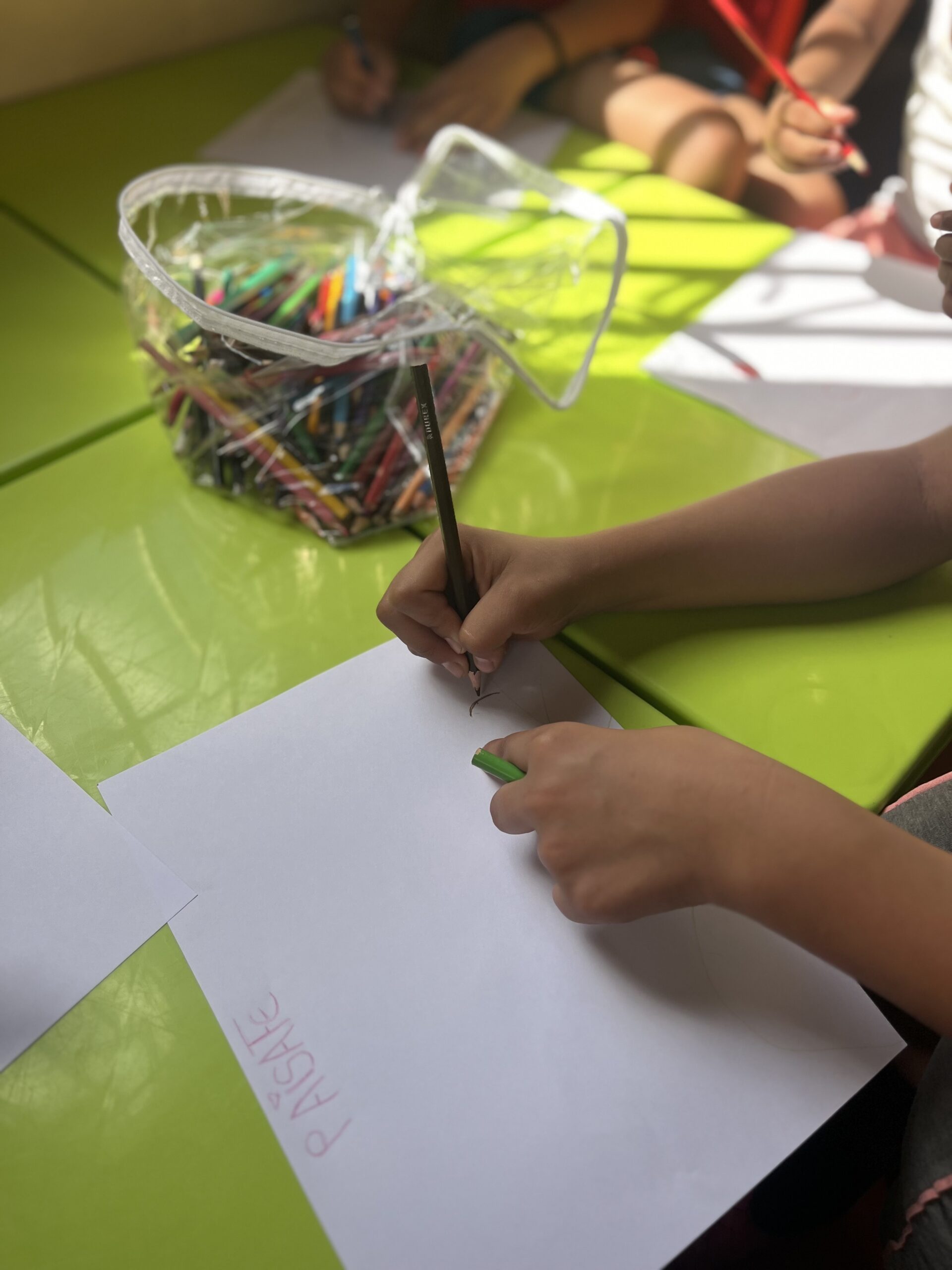This blog is part of a series of dispatches from Elena De La Paz, who is working at Casa Esperanza, a ministry that serves migrants in the northern border town of Los Chiles, Costa Rica. In this series, she wrestles with what it means to follow Jesus’ invitation to live justly, so that everyone can flourish. Read her other posts here and here.
Almost everyone was journeying north before January 2025, hoping to make it to the United States. Only a handful of people made the return South after being deported or turned away at the U.S. border. Others chose to remain in Costa Rica, as the journey they had endured so far took too much of a toll on their bodies.
For the last six months of 2024, I was located at the northern border of Costa Rica, serving the migrant community at Casa Esperanza, a dining hall and dormitory.
Everyone I spoke to searched for safety, stability, and new opportunities; some searched for protection from violence and persecution, while others hoped to reunite with family members that had long since been forced to leave their country.
Listening to people share their dreams for their children became my daily, sacred rhythm. Dreams for their kids to play in the street without fear of violence, to have nutritious food and clean water, to have access to medical care, to receive an education, and to become all they can be. A common thread of hope was woven into each story, even amidst a backdrop of much unknown and the weight of enduring trauma and violence.
Words like:
Pero vamos pa’lante (we continue on).
Dios está con nosotros (God is with us).
Hay más personas buenas que malas en el mundo (there are more good people than bad in the world).
Hope, interlaced with hardship and heartbreak.
But, oh, how the panorama of migration has shifted in the last month since the Trump administration took office…
Stories of Reverse Migration.
At the beginning of February, I took a 5 hour bus ride back up to Casa Esperanza. Now, nearly 60% of the people I talked to were no longer heading north – they were caught up in the reverse migration flow, many arriving back at the northern border of Costa Rica by bus or on foot.
I met Jaime, from Venezuela, who told me about how his CBP One appointment to present himself at the border and apply for asylum had been scheduled for the afternoon of January 20th. Only a few hours before his scheduled appointment, they cancelled. Four months of waiting, wasted. It was a particularly painful blow after the trauma endured in the Darién Gap caused his partner who was five months pregnant to miscarry while they were passing through Guatemala. The four tumultuous months that they spent in Mexico, facing violence and insecurity instigated by the cartels, armed forces, and police corruption—were all for nothing. They lost their shot to enter the U.S. through a regular route, so they decided to journey back south.
A father and mother recounted their time in Mexico as their 6-year-old daughter colored. They rarely left the house that they were living in with a number of other migrants, because they were so afraid of being abducted, having their documents taken from them, being forced into trafficking, or something happening to their daughter. The father needed a job, but without papers, he was forced into a construction job that paid horribly for the long hours that he worked. The mother made empanadas and sold them in the streets, but she was constantly terrified that the police or cartels might pick her up. This was their nightmare – being in another country and living the same reality as the one they had left.
Instead of hope, devastation and despair was the thread woven into stories of reverse migration. To leave behind your home with a clear destination in mind is hard enough, but now they are forced into another journey: denied legal pathways, they are left vulnerable to violence, exploitation, and trafficking.
The realities that people are facing because of the actions of the U.S. government are infuriatingly unjust. Put yourself in their shoes: denied access while waiting at the Mexico / U.S. border, so you are forced to journey south and cross over a number of other borders. In each of those countries, receiving help becomes increasingly difficult as USAID funding cuts have forced shelters and dining halls to close. There are places all throughout Latin America that, like Casa Esperanza, have been impacted by Trump’s executive ‘stop-work’ orders and cuts to humanitarian aid funds. Without these key funds, we haven’t been able to keep the dormitory open. We are watching before our very eyes as migrants carve new routes, forced south due to the closure of appointments.
I’ll be honest, it’s been easy for me to become lost in anger and despair, sometimes feeling entirely defeated, in this last month. Often, I feel like the only thing that I can hear is the raging sounds of scarcity that link the border cities – not enough funds, not enough immigration appointments in Costa Rica, not enough plates of food, not enough safe places to sleep for the traumatized people passing through. I often feel like I’m not doing enough…
How I Resist the Roots of Empire
One question has grounded me in the last month, and it’s this: How do we resist empire?
I don’t only mean this obvious empire before us, where the world’s richest are robbing the poorest. I also mean, the narratives of empire that have taken root inside of us.
This internal and communal work is vital, because the reality is, if we can’t uproot the forces of empire within our own imaginations and habits, we cannot live out the values of the Kingdom of God. We are invited into this work by Jesus, who resisted both the internal and external workings of the empire, whether it was refusing the allure of power in the desert or flipping the merchant tables in the temple. We must do the same, in our inner and outer worlds. For me this has looked like:
- Finding connection with my own body and recognizing my limits. Running and practicing yoga help me recognize my inner strength and my finite and limited nature as a human being.
Empire doesn’t recognize limits, it always tries to conquer them.
- Sitting with and listening to my neighbors—both the humans and non-humans—that I regularly share space with. They teach me that there is space for nuance and complexity in the world, and that this is beautiful.
Empire creates black and white, “us” versus “them” narratives and systems.
- Reflecting on things I can celebrate or give thanks for. With this practice, I am actively choosing to recognize abundance in my life and community instead of scarcity.
Empire tells us there is never enough, so we must seek more at any cost.
The realities of migration are complex and heartbreaking. But Jesus is present on the journey, inviting all of us to carry the load: loving all our neighbors – seeking justice, loving mercy, extending hospitality, advocating on one another’s behalf, standing in solidarity with the vulnerable. He invites us to walk humbly with the God who knows what it means to be a refugee fleeing empire.
Jesus beckons us to continue to dream together how we might hold fast to hope in the face of despair and injustice. Our stories hold pain, heartbreak, resilience, strength, and hope. Jesus’s story, too. And these loose threads, woven together by the Spirit of God, are transformed into something new – a kind of tapestry.
Our act of resistance in the face of empire is to take this tapestry and drape it across the shoulders of our neighbor, offering shelter and protection when their own tapestry is too tattered, just as Jesus has wrapped us up into his own tapestry of love – a love that sees, cares, and is with us.








